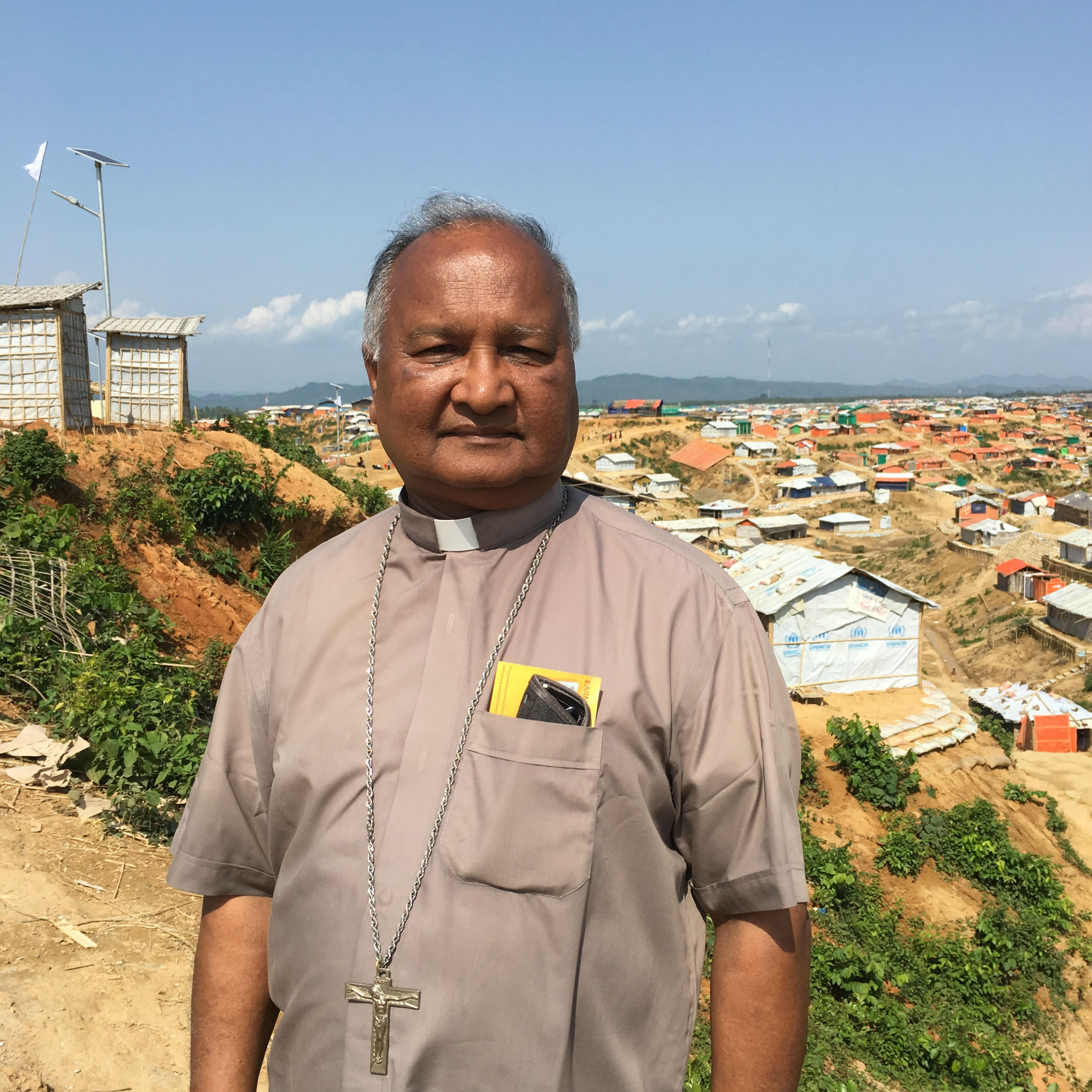Christians are a tiny minority in Bangladesh: there are only 400,000 Catholics in a population of over 160 million.
But Caritas Bangladesh, the Catholic charity of which I am head, is second only to the national government among local providers of humanitarian aid to the Rohingya refugees who have fled here from violence in Myanmar.
This, of course, is thanks to the support of the Caritas aid network around the world, which includes CAFOD in England and Wales. As the first anniversary of the crisis approaches on 25 August, the network’s technical expertise is helping us get the basics of daily life – food, water, shelter – to where they are needed. We have worked with camp communities to prepare them, their shelters and the surrounding areas for the monsoon, which is well under way.
But where will the funding come from as the crisis goes into a second, third, or fourth year? No political solution appears likely in the foreseeable future.
At the core of any settlement will be the ability of the Rohingyas to live dignified and flourishing lives, but I do not see real goodwill to resolve this human tragedy.
Though bilateral talks between the Myanmar and Bangladesh governments end in “positive commitments” to find solutions, politicians return to their respective countries and there is next to no follow-through. People live precariously on the hillsides around Cox’s Bazar, wondering what their fate is to be.
This crisis is complex, with ramifications beyond our immediate emergency response. If the protocols and principles of a safe and dignified return are agreed, for example, and Rohingya families choose to go, what will they find? Will there be education and health services? Will their homes be rebuilt? And what about the many children born in Bangladesh? Will they be stateless?
“Whatever you did for one of these least brothers and sisters of mine, you did for me,” the Gospel tells us (Matthew 25:40). We are not just keeping refugees alive, we are giving hope to people who have lost everything, even their identity. When they see Caritas, they see people who walk by their side, supporting them, showing love for their fellow human-being.
Pope Francis demonstrated this love in November last year, on his papal visit to Bangladesh and Myanmar. He met 16 Rohingya refugees from Cox’s Bazar and prayed with them, saying: “The presence of God today is also called Rohingya.”
The Myanmar and Bangladeshi Catholic Bishops are doing all they can to bring about sincere and honest solutions to the crisis. We know all too well how hard that is: it is a matter of keeping windows open and keeping hope alive. Hope is a small word that carries great responsibility. But as a man of God I know that to give up on hope is to give up on the poorest and most marginalised in our midst.
Bishop Gervas Rozario is the Bishop in the Catholic Diocese of Rajshahi, Bangladesh



 Loading ...
Loading ...
What do you think?
You can post as a subscriber user ...
User comments (0)